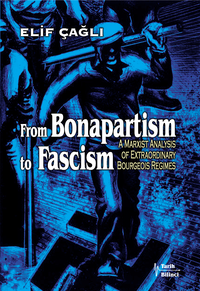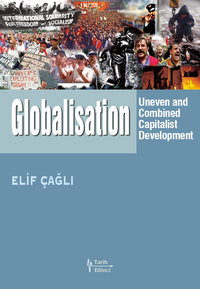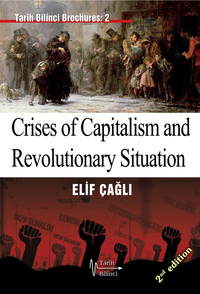Is there any room for a "socialism in one country" in Marx's scientific theory of socialism? Is there a separate socio-economic formation called "socialism" in itself independent from communism in Marx's theory? Can the socialist organisation of society (which is classless society) be compatible with the simultaneous presence of a "nation-state"? Can there really be a workers' democracy if the workers do not rule, even if there is a state conducting "in the name of" the working class, organised in a bureaucratic manner with its professional army and police, judicial and administrative machinery? Or, in such a "workers" state, in whose hands would be the real power: in the hands of workers, or of some others? In this book, Elif Çağlı deals with these questions and other similar ones, and gives answers on the basis of Marxism.
INDEX
I. The Historical Mission of The Proletariat
II. The Question of State in Marxism
The Historical Course of State
The scientific explanation of state-society relationship in Marxism
From barbarity to civilisation: from classless society to class society and state
Oriental despotism: from servants of society to lords of society
Workers’ State: A State Withering Away From the Very Beginning
The Experience of Paris Commune
The Worker’s State Defined by Marxism is a State Without Bureaucracy
On the Concept of Proletarian Dictatorship
III. The Transition Period: A Period of Revolutionary Transformations
The Theoretical Conception of Transition Period as Defined by Marx
Transition Period is not a Stagnant Period
Transition Period is Linked With World Revolution
IV. The Fate of the Isolated Revolution
The Birth of Worker’s Soviets’ State with the October Revolution of 1917
1918-1921: The Life and Death Struggle of the Soviet Worker’s Power
1921-1924: The Bureaucratic Degeneration of the State and the Party
1924-1928: The Process of Bureaucratic Counter-Revolution
1928-1936: Reinforcement of the Bureaucratic Dictatorship
The Situation of the Working Class
The Constitution of 1936 and Liquidation of Bolshevik Cadres
V. The “Transition Period” Ceases to Exist Under Bureaucratic Dictatorship
The ideology of the bureaucratic state
The characteristics of the bureaucratic regime
Bureaucracy is a state-based class
Bureaucratic regime has no future
VI. Trotsky’s Views on the USSR
1936: “The Revolution Betrayed” and after
VIII. Critique of the Theory of “State Capitalism”
What is, and is not, state capitalism?
On the Theory of State Capitalism In General
The Question of Military Competition
The Question of the Law of Value
Is Labour-power a commodity in the USSR?
Has the Operation of the Law of Value Altered?
VII. Freezing Trotsky’s Analyses
Mandel’s concept of “transitional society”
IX. Different Views on the USSR
On Max Shachtman's Assessments
Those who Consider “Bureaucratic Collectivism” as a Worldwide Tendency
link: Elif Çağlı, In the Light of Marxism, May 1991, https://enternasyonalizm.org/node/561







